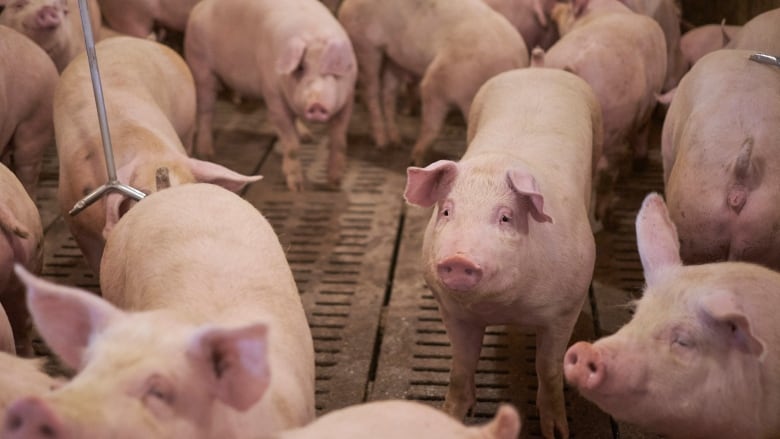Recombinant African Swine Fever Virus Provides Tool to Evaluate Antiviral Compounds

A recombinant African Swine Fever virus designed to fluoresce when it replicates is helping researchers evaluate the effectiveness of antiviral compounds for use in developing new drugs to help control the infection
by Bruce Cochrane – Farmscape.ca
With funding provided by Swine Innovation Porc, researchers with the Vaccine and Infectious Disease Organization have created a recombinant African Swine Fever virus that allows them to see the effects of antiviral compounds on viral replication.
Dr. Suresh Tikoo, a Professor and the Director of the Vaccinology and Immunotherapeutics Graduate Program, in the School of Public Health and a senior scientist with VIDO, explains researchers are now evaluating panels of commercially available antiviral compounds.
“When we treat the cells and then infect those cells with the GFP expressing virus we can measure the virus replication”“Mostly they are synthetic compounds which have been tested against a number of different viruses and other microorganisms.
“There are panels available from 5 thousand to 20 thousand compounds from the commercial companies.
“Usually, the drugs can act at different stages of virus replication.
“For example, virus attachment, DNA replication, protein synthesis or encapsulation of the virus.
African Swine Fever virus does not form what we call plaques, which means that we can not see under the microscope whether the virus is replicating or not.“So, we had to produce a recombinant African Swine Fever virus which expresses green fluorescent protein (GFP), a reporter gene.
“We have isolated that virus.
“So, what that gives us is that, when we treat the cells and then infect those cells with the GFP expressing virus we can measure the virus replication by visualizing the difference in number of cells expressing green signal (treated vs non treated cells) under the microscope.”
Dr. Tikoo says researchers are using high throughput screening in vitro (in tissue culture) in the CFIA approved level 3 lab at VIDO’s International Vaccine Center in hopes of identifying a few antiviral compounds that merit further testing in vivo (in live animals).
He expects to have results of the in vitro testing within four to five months.
Farmscape is produced on behalf of North America’s pork producers











